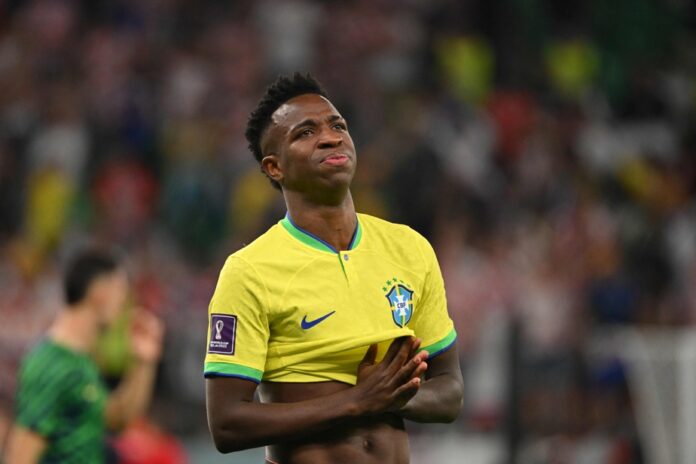(Geneva) The UN High Commissioner for Human Rights on Wednesday denounced the racist insults hurled at Brazilian striker Vinicius Junior during a match in Spain, calling for concerted efforts to eradicate this scourge in the sport.
“We call on all these sporting events around the world to counter, combat and prevent racism,” Volker Turk told a press conference in Geneva, saying the new incidents mark “a stark reminder of the prevalence of racism in sport”.
On Sunday, the 22-year-old Real Madrid striker was the target of all kinds of insults, including racist insults, during his side’s 1-0 defeat at Valencia.
These incidents which inflamed Spain, where proven cases of racism have been increasing for several decades in stadiums, without leading to real criminal sanctions.
In this case, Mr. Turk, however, welcomed “a very strong reaction from the authorities”, pointing out that “they started arresting people very quickly afterwards”.
“An investigation must take place. This is a matter that will concern justice,” he added.
For the top UN human rights official “those who organize sporting events take this issue very seriously”.
While acknowledging the many positive aspects of the sport, Mr. Turk believes that there is also a need to “deal with the dark side”. The High Commissioner has asked his services to prepare a policy report on the issue of racism in sport.
“We want to come up with a number of clear ideas on human rights standards in sporting events,” he insisted, highlighting issues of participation, inclusion and “breaking down the stigma and racism”.
“We found discrimination on a wide range of issues, including gender discrimination and discrimination against LGBTI people who also participate in sporting events,” Turk said.
It needs to be absolutely clear, he said, that “racism is totally unacceptable” and called on everyone to do some soul-searching: “Do I have a bias?… How is this how do I react when I see someone else hurling a racial slur?… Do I put up with it, do I respond to it? »
“We have to find ways to completely eradicate it in the 21st century. It requires everyone to come to grips with (the problem). »





